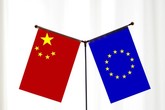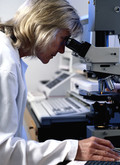Reports
China–EU market expansion for biosimilars
Hao J stated that the prospects for biosimilar sales in China are huge, but there are many companies in the market battling for share, and so they are slowly turning in the direction of sales abroad, including the European Union (EU). However, in entering the EU they must go up against many large and well-established biopharmaceutical companies. She said that ultimately market share will go to the most efficient and economical producers [1].
Challenges for Chinese companies to bring biosimilars (copy biologicals) to EU
A presentation by Dr Jenny Hao, a pharma operating partner with Converge Partners at the Festival of Biologics meeting in Basel, Switzerland in November 2021, highlights the interest Chinese biosimilars producers have in Europe and the challenges they face.
Pathways for Chinese pharmaceutical companies to enter EU markets
China was significantly behind the European Union (EU) in starting to approve biosimilars/copy biologicals. However, despite the small number of copy biologicals approved in the country, China has been much faster to commercialize such products [1].
Chinese biosimilars (copy biological) in European markets
A presentation entitled ‘International commercialization on biosimilars’ delivered by Dr Jenny Hao of Convergence in November 2021 at the Festival of Biologics meeting in Basel, Switzerland discussed the challenges and opportunities for Chinese biosimilar (copy biological) companies to market their products in the European Union.
Preparing for future biosimilar opportunities
Fifty-five per cent of biosimilar opportunities from loss of exclusivity come from just 10% (13) biologicals, which are concentrated in the oncology space, according to a report released by data analysis firm IQVIA [1].
How biosimilar competition in Europe is changing
A report carried out at the request of the European Commission found that the development of access to biologicals in Europe remains challenging [1].
Developing access to biologicals remains challenging
In a report, carried out at the request of the European Commission, data analysis firm IQVIA, found that the development of access to biologicals in Europe remains challenging [1].
Savings from biosimilars reached an all-time high in 2021
A recent report has highlighted how despite the impact of the COVID-19 pandemic in 2020, the volume of biosimilar prescribing has generated a record high in savings from biosimilar competition.
Comparison of the cost of development of biologicals and biosimilars
The high cost of pharmaceuticals, in the case of biologicals, has a growing impact on healthcare costs worldwide.
Impact of COVID-19 pandemic on biologicals
A report released by data analysis firm IQVIA found that the COVID-19 pandemic has impacted certain segments of the biologicals market, but that, at least in Europe, this has not delayed the approval of new biosimilars [1].













